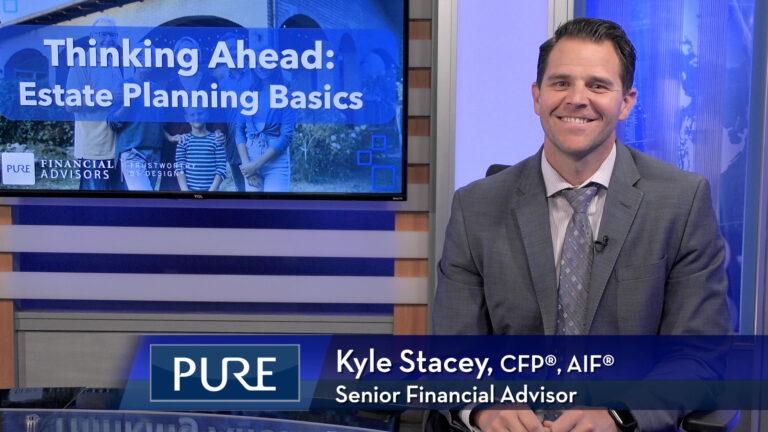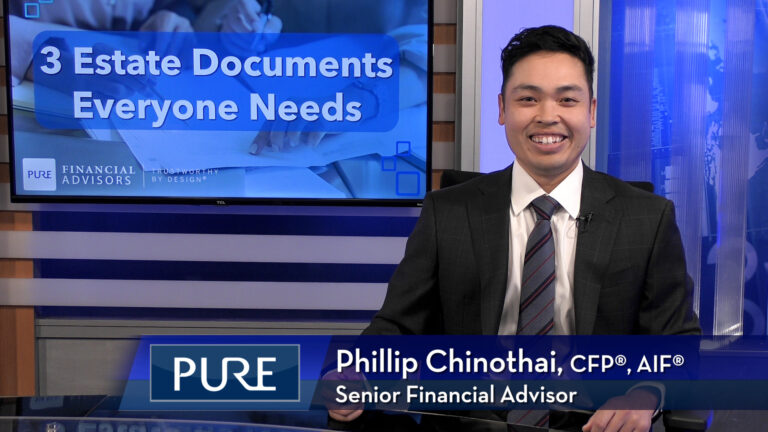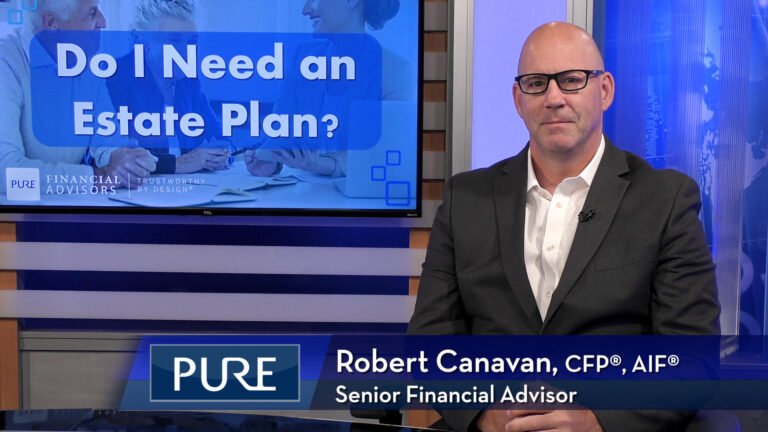Scammers use tactics to infiltrate our lives, often targeting our financial security in increasingly sophisticated ways. Pure’s Financial Advisor, Kamel Miqdadi, CFP® identifies common scams and shares strategies to help avoid them.
Transcript
Seems like scams are everywhere these days: phone calls, texting, emails. So how can you avoid getting scammed? Well, before we can avoid them we first need to know how to identify them, here are a few tell-tell signs that it’s a scam.
Pretending to be from an organization that you know. Like “Hey I’m calling from” the Social Security administration, the IRS, the utility company, the bank or even a charity and what’s even more believable is that they might be using technology that changes the phone number or the name that appears on your caller ID.
Most of the time these scammers either work on fear or greed so you either have a big problem that needs your attention, or you’ve have won a lot of money. They want to create anxiety or elation to have you to make rash decisions.
Pressuring you to act immediately. They don’t want you hanging up the phone to think about it. They want you acting now. Playing on your anxiety of possible arrest, suspension of driver’s license, Social Security benefits or even that your computer had been hacked and ID stolen.
Asking for payment in a specific way is another tell-tell sign. Like you can only make the payment through cryptocurrency, MoneyGram, Western Union or even putting money in a gift card and giving them the numbers.
So now that you have identified that you’re being scammed, how to avoid it?
One of them is simple and easy, just block unwanted calls or text messages and you can do that through your mobile phone carrier.
The next one is very important, never give your personal or financial information in response to a request that you didn’t expect. Banks won’t call or text you to ask for personal information nor will the Social Security or IRS. If don’t think it’s real, just don’t click any of the links, delete the text immediately, or just hang up without any action.
And whenever you pay, don’t pay with cryptocurrency or giveaway your credit card number. When shopping online for a product or service always check the URL browser for a lock icon this indicates that the connection between the browser and the website is encrypted, and it means that the data being sent between the two is secure and cannot be read by others.
However, it’s normal to get worried and if they got you worried, just go online, find the customer care number for the organization they claim to represent, call them back and verify.
Most importantly just don’t fall for the pressure on you to act immediately. Stop for a little bit, think about it, talk to someone, and if it sounds to urgent, absurd or out of the blue then it’s probably a scam.
If you need help with these or other financial topics, please contact Pure for a free financial assessment.
Subscribe to our YouTube channel.
IMPORTANT DISCLOSURES:
• Investment Advisory and Financial Planning Services are offered through Pure Financial Advisors, LLC, a Registered Investment Advisor.
• Pure Financial Advisors LLC does not offer tax or legal advice. Consult with your tax advisor or attorney regarding specific situations.
• Opinions expressed are subject to change without notice and are not intended as investment advice or to predict future performance.
• Investing involves risk including the potential loss of principal. No investment strategy can guarantee a profit or protect against loss in periods of declining values.
• All information is believed to be from reliable sources; however, we make no representation as to its completeness or accuracy.
• Intended for educational purposes only and are not intended as individualized advice or a guarantee that you will achieve a desired result. Before implementing any strategies discussed you should consult your tax and financial advisors.
CFP® – The CERTIFIED FINANCIAL PLANNER™ certification is by the Certified Financial Planner Board of Standards, Inc. To attain the right to use the CFP® designation, an individual must satisfactorily fulfill education, experience and ethics requirements as well as pass a comprehensive exam. Thirty hours of continuing education is required every two years to maintain the designation.














